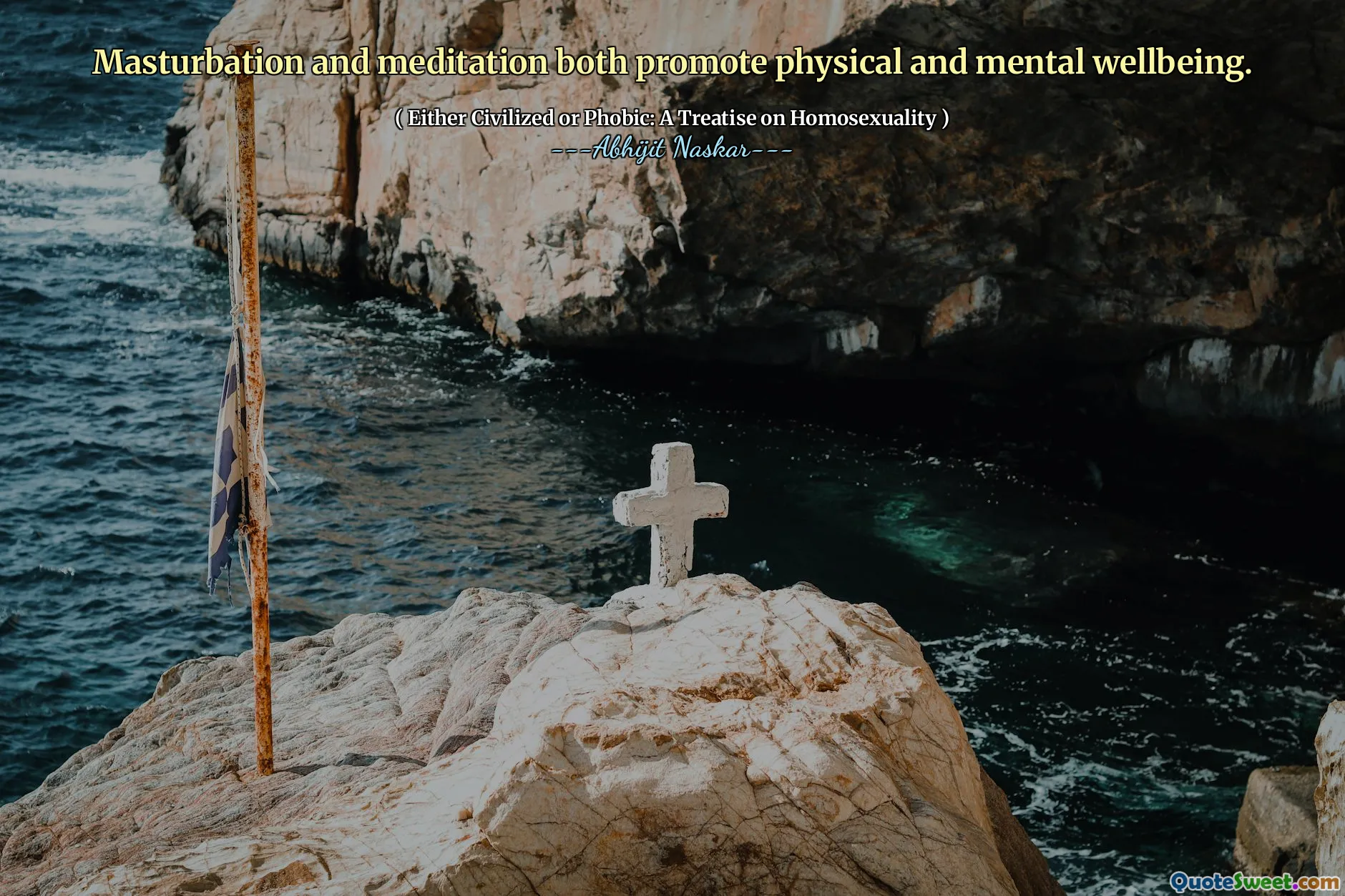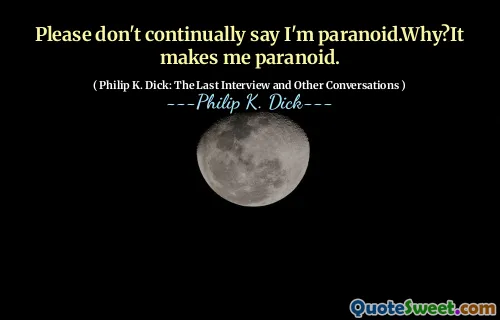
Masturbation and meditation both promote physical and mental wellbeing.
The quote highlights the potential benefits of two distinct yet significant practices — masturbation and meditation — in enhancing both physical and mental health. At first glance, the pairing of these practices might seem unusual to some, but upon deeper reflection, it becomes clear that both activities share common ground in their ability to foster self-awareness, manage stress, and contribute to holistic wellbeing.
Masturbation, often considered a taboo subject in many societies, is a natural and healthy act that allows individuals to explore their own bodies, understand their desires, and release pent-up tension. From a physiological perspective, masturbation has been shown to relieve stress, improve sleep, and boost mood through the release of endorphins and other neurotransmitters. It can also serve as a form of self-care, enabling individuals to connect intimately with their sexuality, which is a vital aspect of overall wellbeing.
Meditation, on the other hand, is a time-honored practice aimed at calming the mind and fostering mental clarity. Through focused breathing, mindfulness, or other techniques, meditation helps in reducing anxiety, increasing concentration, and cultivating a sense of inner peace. Regular meditation can generate structural and functional changes in the brain, enhancing emotional regulation and resilience against stress. It supports mental health by creating a balanced perspective and enhancing one’s ability to navigate daily challenges with equanimity.
The quote subtly encourages an open-minded approach to wellbeing — one that recognizes both physical expression and mental discipline as valuable tools. In a world where stress and mental health challenges are increasingly prevalent, integrating such practices can empower individuals to take proactive steps toward their health. Moreover, combining the release of physical tension through masturbation with the calming effects of meditation could lead to a synergistic enhancement of one’s physical and mental state.
Abhijit Naskar’s work, particularly in the context of "Either Civilized or Phobic: A Treatise on Homosexuality," often challenges societal prejudices and advocates for self-acceptance and mental freedom. This quote aligns well with that theme, subtly dismantling the phobic attitudes toward natural human behaviors and urging a recognition of their positive roles. Through this lens, the promotion of such practices not only enhances wellbeing but also contributes to breaking down shame and stigma, encouraging healthier and more honest relationships with oneself.
Ultimately, this quote encapsulates a progressive message: embracing practices that nurture both body and mind, irrespective of societal biases, can lead to a more balanced and fulfilling life.

